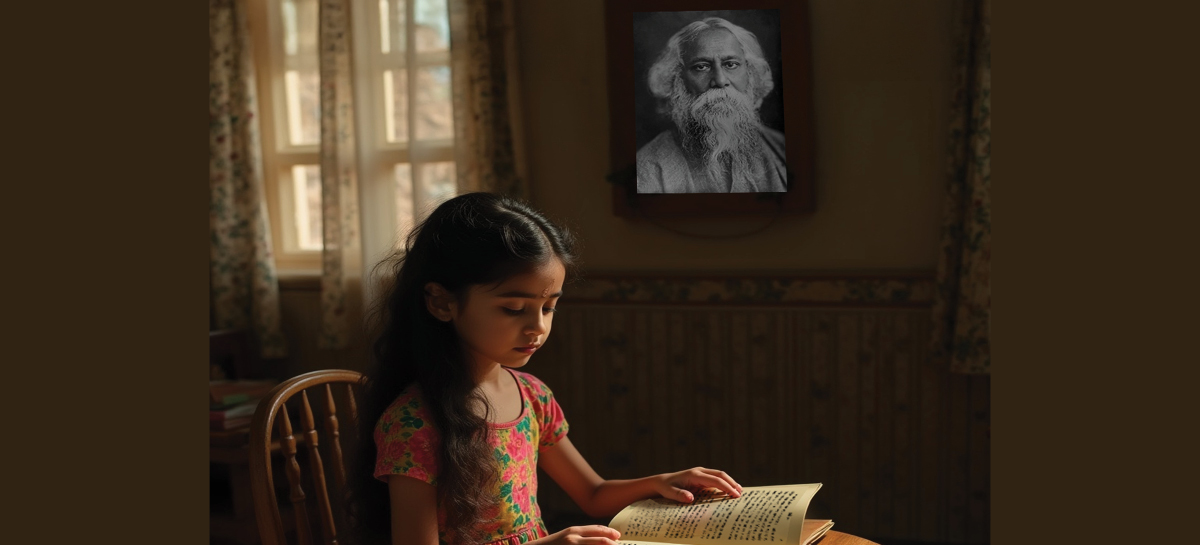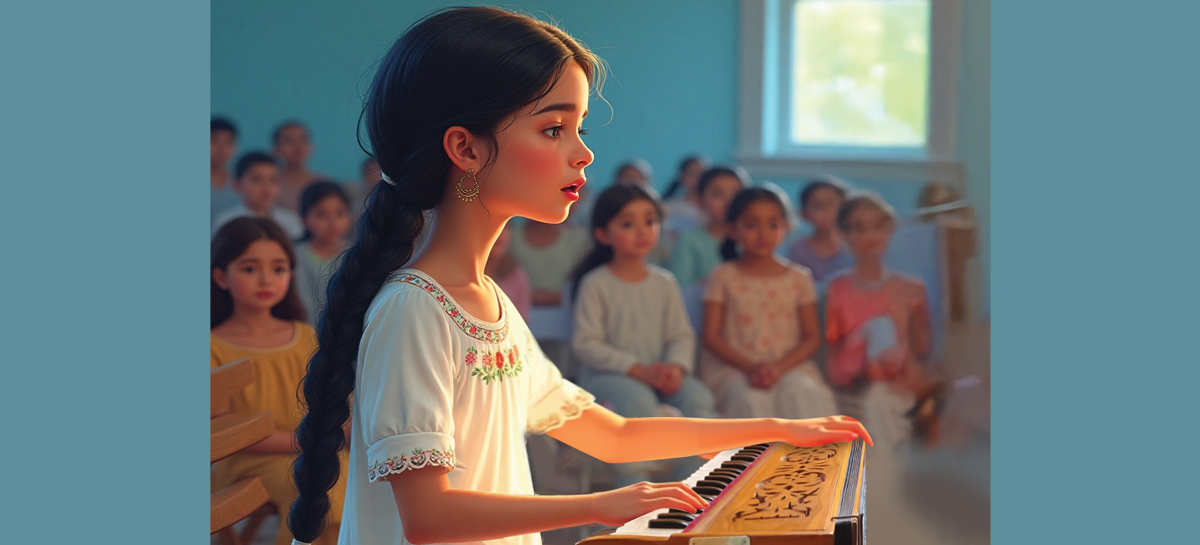A few days ago, we celebrated Rabindra Jayanti, an opportunity to reflect on the timeless legacy of Rabindranath Tagore. Our member, Ms G. Sengupta, shares how she and her family continue to cherish and find inspiration in the great poet’s works.
Rabindranath Tagore, often known as “Gurudev” (Honoured Teacher) or “Kobiguru” (Poet Supreme), was a polymath who made significant contributions to literature, music, art, education, and social reform—the list goes on. Born in 1861 in Jorasanko, Kolkata, young Tagore’s mind wandered freely in nature and among people, seeking to understand the universe and the human condition.
Like most Bengali children, my introduction to Tagore began with “Jol pore, paata nore” (“The rain falls, the leaf quivers”), ostensibly the first poem he wrote at the age of five, and Sahaj Path, the renowned Bengali primer. However, as a child and even in adolescence, I had not yet matured enough to comprehend the profound philosophical depth in his works.
As life went on and I gathered experiences, I awakened to the omnipresence of Tagore—his influence was deeply embedded in my household and the larger Bengali culture. I was fortunate to marry a man with whom I shared a love for Tagore’s works. Together, we grew, enjoying and eventually immersing ourselves in Rabindra Sahitya (Tagorean literature) and Rabindrik Sanskriti (Tagorean art and culture). We are blessed that our children have carried on this tradition. My daughter continues to engage with Rabindra Sanskriti in the US through dance, music, and philosophical discourses.
Tagore’s legacy is not just about the past; it is a living, breathing presence in our lives. His words and music continue to shape our emotions, thoughts, and values, connecting us across generations and geographies.
(As narrated to Support Elders by our member)
Categories
Growing Up with Gurudev


